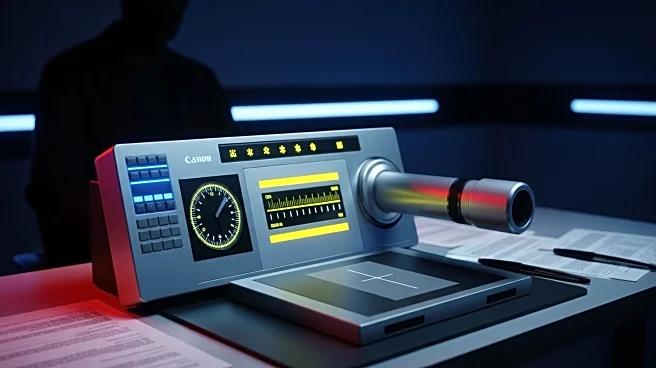What is the story about?
What's Happening?
The Pentagon is set to introduce strict nondisclosure agreements (NDAs) and random polygraph testing for its personnel, including top officials, as part of Defense Secretary Pete Hegseth's efforts to combat leaks and internal dissent. This initiative will affect over 5,000 military service members, civilian employees, and contract workers within the Office of the Defense Secretary and the Joint Staff. The NDAs will prohibit the release of non-public information without approval, while the polygraph tests aim to identify individuals leaking information to the media. These measures are part of a broader strategy by the Trump administration to ensure loyalty and control within the Department of Defense. The proposal has sparked concerns among former officials and national security lawyers, who argue that the measures are more about ensuring loyalty to the administration than countering foreign espionage.
Why It's Important?
The implementation of these measures could significantly impact the transparency and flow of information within the Pentagon. By imposing NDAs and polygraph tests, the Pentagon aims to deter leaks, but it may also stifle internal communication and whistleblowing. This move could lead to a culture of fear and intimidation among personnel, potentially hindering the identification and resolution of internal issues. The broader implications for U.S. national security and military operations are significant, as these measures may limit the ability of service members and defense personnel to report problems without going through their chain of command. Additionally, the restrictions on media engagement could reduce public scrutiny of Pentagon decisions, affecting public trust and accountability.
What's Next?
The proposed measures are still in the deliberation stage and have not yet been approved. If implemented, the Pentagon will need to navigate potential backlash from within its ranks and from external stakeholders, including media organizations and civil rights groups. The effectiveness of these measures in preventing leaks will be closely monitored, as will their impact on morale and operational efficiency within the Department of Defense. The administration may face legal challenges if the measures are perceived as infringing on the rights of personnel or the press.
Beyond the Headlines
The introduction of these measures raises ethical and legal questions about the balance between national security and individual rights. The use of polygraphs and NDAs as tools for ensuring loyalty could set a precedent for other government agencies, potentially leading to broader implications for civil liberties. The move also highlights the ongoing tension between the need for secrecy in national security matters and the public's right to know about government actions. As the Pentagon seeks to tighten control over information, the role of whistleblowers and the media in holding the government accountable becomes increasingly critical.
















